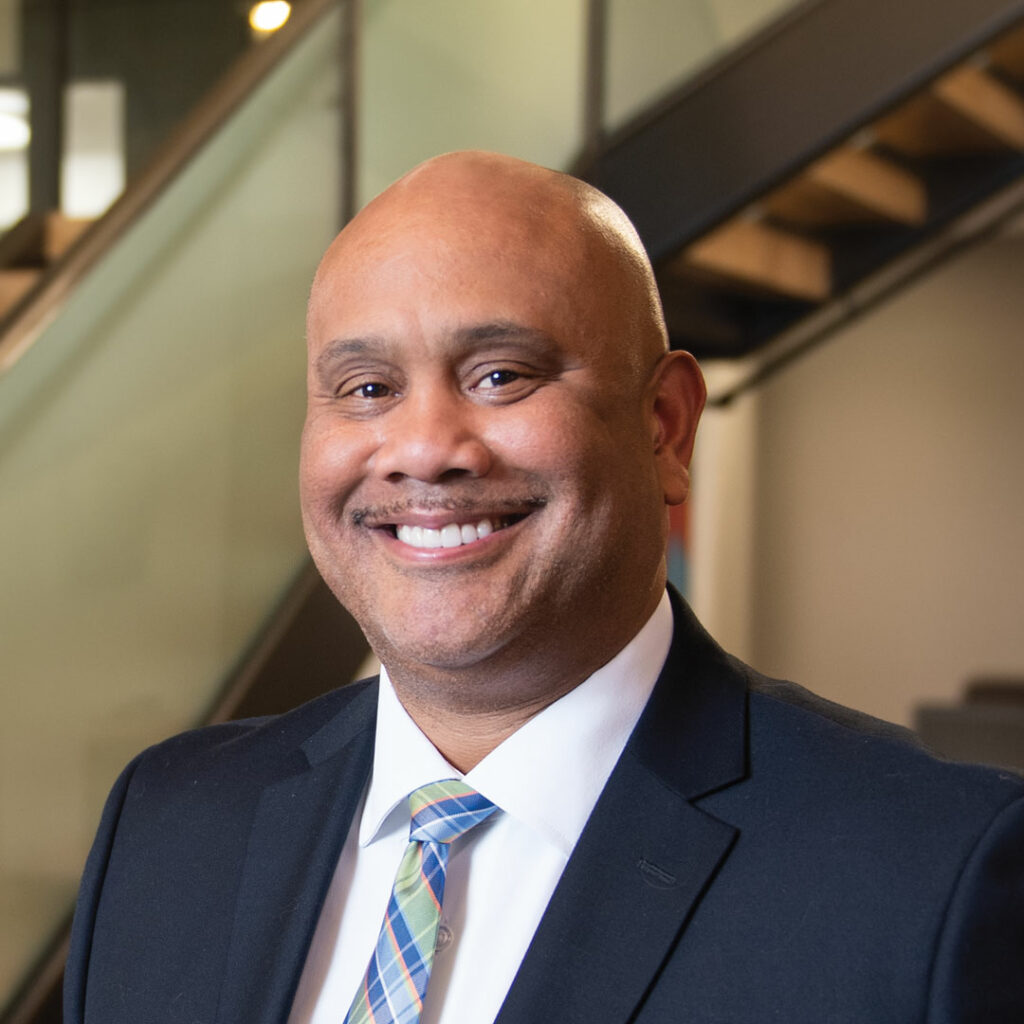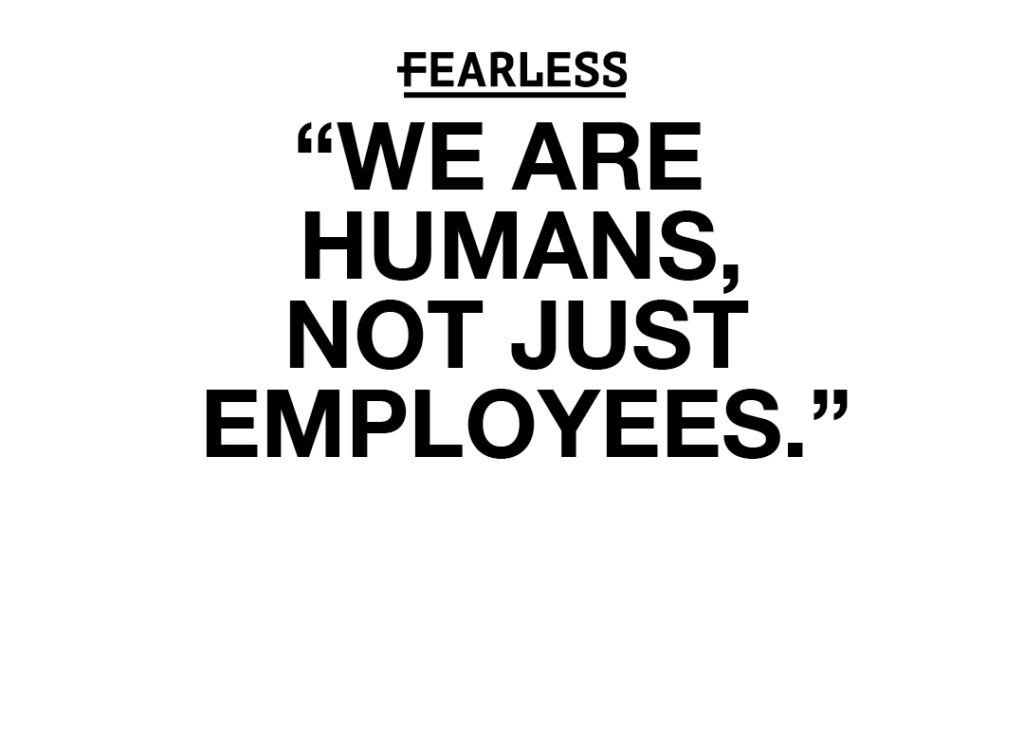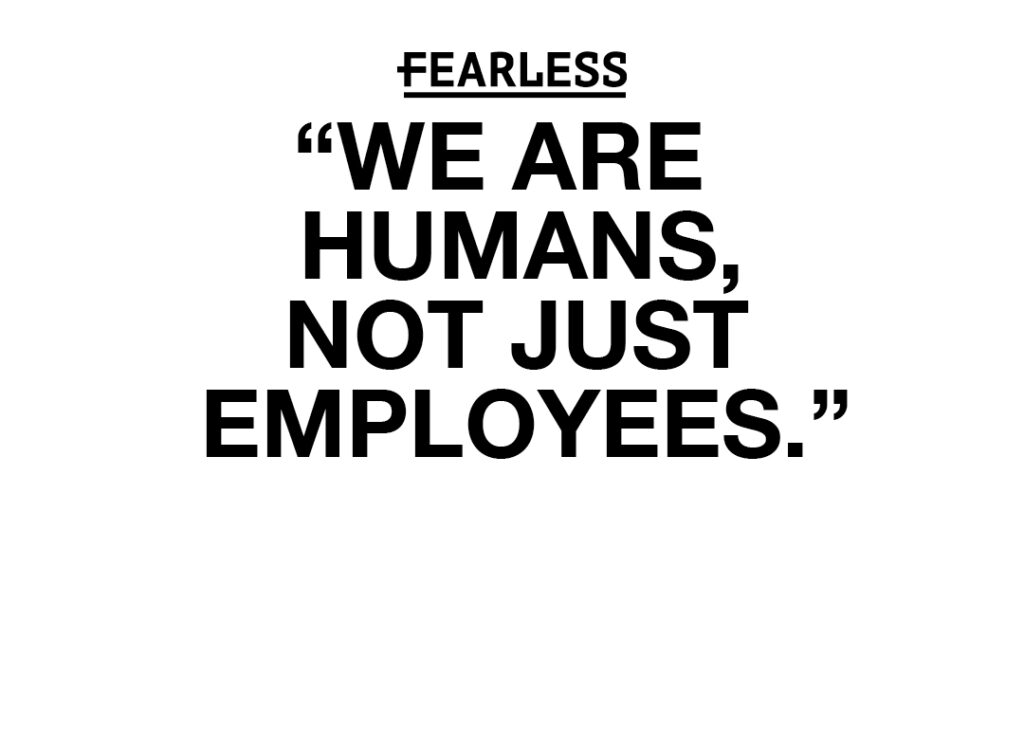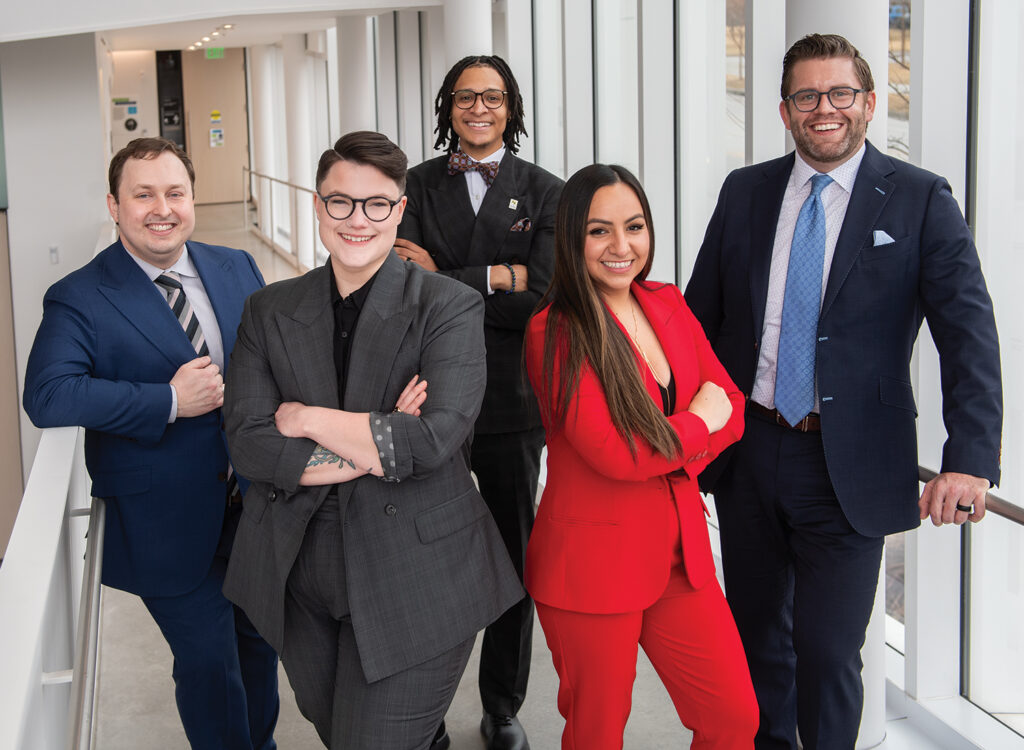Belonging
How Iowa’s culture plays a role in workplace inclusion

Business Record Staff Mar 24, 2023 | 6:00 am
9 min read time
2,153 wordsBusiness Record Insider, Diversity, Equity and Inclusion, Workforce Development
This series was reported by Emily Kestel, Michael Crumb, Sarah Bogaards and Nora Felder.
Editor’s note: This is part three of a three-part series looking at how the state’s history and values play a role in workplace inclusion. As businesses continue looking to recruit and retain top talent, understanding the nuances of diversity, equity and belonging at work is paramount. Part one focused on Iowa’s history of inclusion, part two focused on how this affects the workforce, and this part will talk about how leaders can approach solutions.
– Emily Barske, Business Record editor
Becoming a more inclusive workplace
As companies continue their journey to a more diverse and inclusive workplace, they must do the hard work and avoid falling victim to easy tactics for the sake of appearances, said one consultant who works with companies on their DEI strategies.

For example, a company may rely on lunch-and-learns, thinking they are checking the box, rather than building a cohesive strategy around diversity, equity and inclusion, said Claudia Schabel, president and CEO of Schabel Solutions.
“And that’s a problem,” she said. “When you have a collection of tactics it can resemble busywork versus meaningful work, and that’s why it can get frustrating.”
And to do meaningful work, it must start as a conversation with the leadership team and provide guidance to an entire organization, and ensure that inclusion is part of a company’s DNA.
“The first thing is to have a conversation about that,” she said. “Why are we doing DEI? Why is it important to us? Often when leaders have that conversation, people start to describe the way they want people to feel when they are in the workplace. That helps understand the motivation, why it’s important to the business, and it helps to solidify this concept around inclusion.”
If they do that, they are “well positioned to attract and retain talent,” she said.
“Is it always easy? No,” Schabel said. “It will continue to be a challenge, but what’s easier now is it’s authentic.”
And authenticity is important for success, she said.

Building trust
Start simple.
That’s what Anne Cooper, senior vice president and chief human resources officer for Sammons Financial Cos., advised.
“One of our approaches was listening sessions,” she said. “What do you think? How are we doing? Most companies of any size will have some sort of engagement survey. That’s an easy way to ask questions around DEI.”
Cooper also suggested companies have roundtable discussions where they invite people in to learn their points of view. Most important, she said, is to “keep it true to who you are as a company as opposed to just buying something off the shelf or trying to copy someone else, because candidates and current employees will see right through that.”
It’s also important that if feedback is sought, action needs to be taken.
“Anytime you ask for feedback or input on a topic, you have to take action on that,” Cooper said. ”It may not be every single thing, but there has to be an action plan because that’s critical to building trust with the workforce. If you ask and keep asking without showing that action plan, you’re going to damage that relationship that is so important.”
Besides an outcome of a more representative workforce, it comes down to creating a sense of belonging, she said.
“For me to be able to say I belong here because it feels inclusive and I’m being asked for my opinion and see actions coming from it, and I see that we’re putting our money and our time where our mouth is, that leads to my sense of belonging,” Cooper said.

Overcome fears
Marvin DeJear, chief diversity, equity and inclusion officer for the Greater Des Moines Partnership, said it’s important for people to have space where they feel safe to ask questions individually that they don’t feel comfortable asking others.
“That gives everybody space to ask whatever they think and make sure we can get to a common ground so we can make better, informed decisions moving forward,” he said.
That can help companies be successful as they continue their DEI journey, DeJear said.
It’s also critical to not let fear dissuade the process, he said.
“Just jump in,” DeJear said. “We’re all going to make mistakes. It’s all new in some spaces. Everybody is learning, but don’t let fear of making mistakes hold you back.”
At a Business Publications Corp. Envision Iowa event in 2022, Liesl Eathington, a research scientist in the department of economics at Iowa State University, said she believes people start to “shut down” when conversations about inclusion get uncomfortable.
“Honestly, after years of participating in initiatives and watching communities large and small try and grapple with this problem of Iowa’s lack of diversity, I think the biggest challenge is the unwillingness to really be honest, face some hard truths about the state,” she said.
“It’s a lot easier and a lot more exciting to say, ‘What can we do differently, what can we do that’s new, what kind of new festival can we have?’ It’s much harder to say, ‘What are we doing wrong, what do we need to stop doing that’s just not working, that’s not attracting people who are different?’ …”
It’s much harder to say, ‘What are we doing wrong, what do we need to stop doing that’s just not working, that’s not attracting people who are different?’ …
Liesl Eathington, research scientist, department of economics at Iowa State University
Starting at the top
Schabel said it’s important that the DEI conversation live at the highest level of the chain of command for there to be success.
“Organizations that start this at the grassroots or committee level that is not involving leadership may not sustain the efforts long-term,” she said. “Not because those conversations are not important or that those people don’t have great ideas, it’s because leadership needs to be guiding this work.
But it does take buy-in from employees to make a workplace inclusive, and it’s important to develop “tools in your workforce culture today to enable those social connections between employees no matter what their background is,” Schabel said.
“What is the investment you are making to ensure that people feel included and people feel that sense of belonging in the organization?” she said. “Both are equally important.”
Schabel said it’s easy for people to be inclusive or nice to people who are similar to them.
“Being inclusive with people who are like you is not very challenging,” she said. “It’s very common and easy.”
But being inclusive at work is more difficult, Schabel said.
“Inclusivity at work is truly when people are different and you appreciate the differences,” she said. “You appreciate what they bring to the table and they feel safe to share who they truly are.”
But Schabel said “diversity without inclusion is not good enough.”
“If you don’t have inclusivity at work, that means you’re not truly leveraging that diversity of thought, diversity of background, diversity of perspectives, diversity of how they do their work, because people might be holding back their thoughts and contributions because there is not enough psychological safety in the workforce,” she said.
Connecting Iowa’s past and its future
DeJear said that while a lot of people are welcoming in Iowa, the state is not without its challenges.
“Iowa has the ‘Iowa nice’ thing going for it, which is great, but you have to be realistic and understand that there’s always been that subtle, underlying thing that Iowa still has challenges from the past to the current,” he said. “I think what we see more now is some of those challenges have risen up to the forefront versus being in the background.”
While there have been a lot of positive things happening in Iowa, there is still the fine line of checks and balances, he said.
“Iowa has been progressive on so many levels,” DeJear said. “You can’t lose sight of that, but I think that’s where we’re at now. Will Iowans stand up to represent what they know about who they are, regardless of politics, or believe in some instances what history is real or not? We’re coming to a space from that ‘Iowa nice’ and what everyone feels and believes about Iowa. It’s time to stand up with conviction and let the world see that. We can no longer be silent. We can no longer step to the side and say it’s going to work itself out.”
Employees’ thoughts on belonging, successful inclusion efforts
Knowing where and how to start efforts that support belonging in the workplace isn’t always a clear path. At the Business Record’s Power Breakfast event in February, panelists discussed hiring practices that are creative and inclusive for employers to consider. Ahmed Agyeman, director of the Evelyn K. Davis Center for Working Families at the Des Moines Area Community College Urban Campus, said it is beneficial to drill down to what employees need to be successful in the workplace. For example, an immigrant may need a longer period of time off from work to travel to see family in another country, he said. Or a formerly incarcerated worker may need
access to resources on housing or financial literacy.
Marvin DeJear, chief diversity, equity and inclusion officer at the Greater Des Moines Partnership, said while initiating this work can appear daunting, he and other leaders in the space can and want to help. He suggested employers can start by being intentional about whom they engage with in the search for new hires.
The Business Record conducted a workplace inclusion survey in late summer and early fall 2022. Here are some of their responses.
What makes you feel like you belong in the workplace?
- “Engaging with a company that values my skills, knowledge and experience that advances the business strategy and measures my performance through accountability and responsibility.”
- “Participation in organizational decision-making, my LGBTQ+ identity being recognized and not stigmatized, a commitment to gender and other forms of equity.”
- “Policies and practices that reflect my identities. This can be as small as asking for pronouns and a diverse set of options for gender and ethnicity on forms, to as big as ensuring my medical conditions are covered via insurance.”
- “When the espoused values of the workplaces are demonstrated through alignment of words and actions.”
- “Thinking about how to make sure all people feel included and valued. There are many differences that people have and thinking about all of these differences when event planning is important.”
- “Involving as many diverse opinions as possible to sit at the table and help make decisions.”
- “The ability for everyone to be a part of the same opportunities and have access to the same resources to achieve those opportunities.”
Respondents also identified efforts they have seen succeed in their own workplace as well as in the business community in general. Here are some of those answers.
What do you think your employer does well in its efforts around inclusivity?
- “We intentionally seek out and contract with local and diverse suppliers to work with for all of our sourcing needs. If they are doing the work we need done and doing it well, we will find and work with them.”
- “Surveys the team to understand where gaps may be and works toward providing a welcoming work experience at all times.”
- “My workplace strives to be representative in our workforce and our programming. We strive to make programming and communications accessible.”
- “We involve the entire staff when making major changes to our infrastructure and processes by collecting their opinions and insight. They feel like they are part of the change rather than feeling the change is being done to them. Their voices are heard.”
What are the most successful actions you’ve seen businesses take to address diversity, equity and inclusion?
- “Intentional action related to attracting, developing and retaining diverse talent. This includes topics like recruiting at historically Black colleges, developing employee resource groups and providing intentional mentorship.”
- “Acknowledging that there are differing lifestyles and that this should never take away from a person’s ability.”
- “As with any other business initiative, treat diversity, equity and inclusion as important, create a strategy for long-term success and support its execution long-term. Avoid knee-jerk programming. And, if you seek outside help for these efforts, do your due diligence in selecting the best service provider by looking at their work experience, getting testimonials, references. As you would for any other service, make sure the quality is high to avoid pain downstream.”
- “I’ve seen businesses court a minority population by working with churches to reach that group and hiring influential people that will help draw others in.”
- “I think my company is doing it right by starting small, not publicizing it, and doing the work to do it right for everyone. It isn’t just a fad for us — it’s a real effort.”









